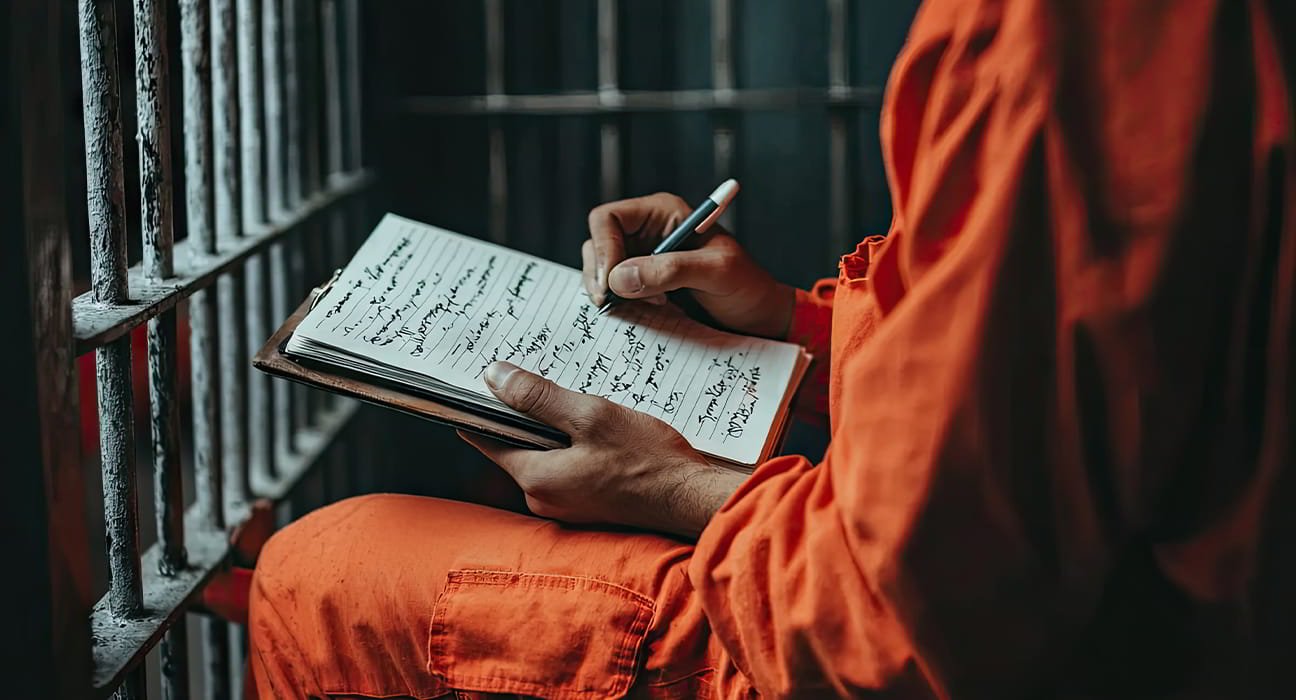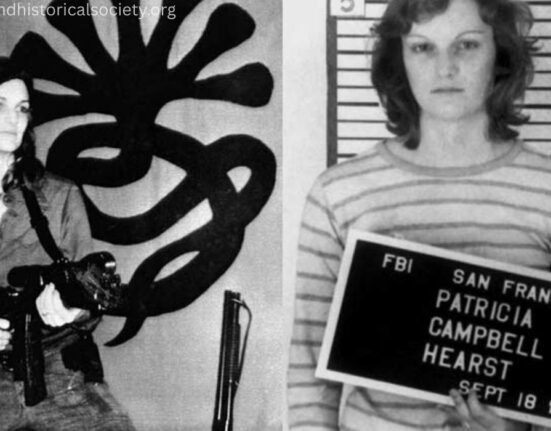Criminal profiling, as popularized in the movies, is considered to be almost a mysterious phenomenon, whereas, in practice, it is a very structured approach that applies the theories of psychology for the analysis of crimes. It acts as a link between the discipline of psychology and law enforcement by aiding efforts to find criminals by tracing their life history. The current article attempts to investigate the place of psychology in criminal profiling and the use of criminal profiling and its theories in the combating of crime.
Understanding Criminal Behaviour
At its essence, criminal profiling seeks an answer to a simple question: what makes people commit crimes? Psychology is useful in the comprehension of why people behave in a certain manner, and what motivates them ranging from ranging from biological predispositions to environmental influences (Why people do what they do). Different psychological perspectives suggest different views as to why deviant behaviour such as criminality is present in some people.
Biological theories take the perspective that genetic factors and abnormal functioning of certain brain areas are common reasons. For example, too much or too little of certain neurotransmitters or an imbalance of hormone activity can affect aggression and self-control, pushing people to behave in a deviant manner. Thus, genetic and neurophysiological factors even some mental health conditions like antisocial personality disorder may contribute to criminal behaviours.
Psychodynamic theories, rooted in Freudian posit that unresolved unconscious conflicts and childhood experiences can manifest in criminal behaviour. Early attachment and negative childhood experiences that are suppressed significantly shape their psychological development which contributes to criminal activities. For instance, children born during times of warfare can be traumatised for life and being involved in criminal activities becomes a medium to bring justice to oneself.
Next comes the Behavioural theories that emphasize the role of environmental interactions in shaping behaviour. Reinforcement and punishment are key concepts, suggesting that criminal habits can develop through learned behaviours and even through observational learning.
So, if a child is born in a household where parents or other family members are a part of criminal behaviour the child is more likely to pick up on those behaviours as so-called ‘normal’ behaviours. The last set of theories is Cognitive theories, which focus on how thought processes influence behaviour. Criminals may exhibit distorted thinking patterns, such as rationalizing harmful behaviour or failing to consider the consequences of their actions.
The Process of Criminal Profiling
The purpose of criminal profiling is to analyse behavioural patterns to identify potential offenders and thus to utilize the different behaviours displayed by an individual to determine their position in the charge of a crime. Forensic psychologists have a variety of approaches to developing profiles based on the compilation of the evidence of the crime. The process of profiling can be outlined in several phases that include Information Gathering to Validation and Refinement of the data gathered.
Information Gathering is the first stage within which all the relevant aspects that pertain to the crime in question are collected. It involves gathering all available information about the crime, including the method of operation, victimology, and any physical evidence.
Next is Behavioural Analysis, in this phase profilers engage in the examination of the actions, or patterns of the actions performed during or surrounding the criminal offence, including the choice of a target and the follow-up after the crime. This analysis helps in understanding the psychological makeup of the offender.
The third step is Profile Construction, as a result of the analysis, the profiler fills in the psychological profile of the offender with personal characteristics (personality traits), gender and/or age (demographics), and even motivations of the offender. This profile aids law enforcement in narrowing down suspects.
Finally, there is a constant evaluation of the profile as new evidence becomes available. This phase is known as Validation and Refinement. Within criminal profiling, it becomes necessary for the profiler to change his or her hypothesis depending on how the case progresses.
Psychological Contributions to Criminal Profiling
Psychology brings improvements to the undertaking of criminal profiling through the incorporation of research and theories. In the US, the behavioural Science unit of the FBI for instance, has refined its profiling methods over the years, integrating psychological science into its practices. Retired FBI agent Gregg McCrary emphasizes that “behaviour reflects personality,” indicating that understanding an offender’s psychological state is crucial in profiling.
The Organized/Disorganized Dichotomy
The organized/disorganized dichotomy is among the most basic concepts of crime scene analysis. This classification further enables to classification of offenders according to their acts during the preferred type of crime. Organised offenders always undertake a thorough preparation of what they intend to do. Their planning is very meticulous, thoroughly planned and carried out. On the other hand, disorganized crimes are more or less act on the spur of the moment and thus they plan their operations poorly. The use of this classification assists the authorities in understanding potential scenarios and patterns of future behaviours and defining suspects.
The Role of Forensic Psychology
Forensic psychology plays a critical role in the criminal justice system, merging psychological insights with legal processes. Forensic psychologists complete evaluations and assessments that inform judicial decisions, assist in the rehabilitation of offenders, and provide expert testimony in court.
Profiling in Practice
Criminal profiling has often been useful in the resolution of some of the notorious cases in history, especially serial criminals. For instance, in South Africa a case of a serial killer Moses Sithole was psychologically profiled and authorities managed to understand the movements and predict his behaviour. To put it narrowly humans, exist in their patterns. Some profilers managed to successfully analyse and identify these crime patterns which then provided recommendations to the police leading to the arrest of their targets.
Challenges and Critiques
Though a variety of successful profiling techniques are being employed and successfully used these days, not everything is so easy in this domain. Critics argue that profiling can sometimes lead to biases and misconceptions about offenders leading to unwanted labelling of even certain communities as well at times, an example of this is what happened with the DNTs (Denotified tribes) in Delhi. Thus, stereotypes can lead to a foundation for faulty conclusions, often leading the observer away from the true culprit. Moreover, the scientific rigour of some profiling methods has been questioned, prompting calls for more empirical research to support profiling practices.
Future Directions in Criminal Profiling
Undeniably like any other field even the field of criminal profiling as a discipline evolves with advancements in technology. There is an ongoing change in the manner in which profiles are constructed through the use of data analytics coupled with artificial intelligence. By analysing large datasets, psychologists can identify patterns that may not be immediately apparent through traditional methods. This evolution promises to enhance the accuracy and effectiveness of profiling in the future.
The role of psychology in criminal profiling is multifaceted and vital for modern law enforcement. Applying principles of psychology to criminal behaviour makes understanding the psychics of offenders easy and quick and even helps in prediction and hence contributes to the catching of the offenders. As the field continues to evolve, the collaboration between psychology and law enforcement will remain crucial in addressing the complexities of crime and enhancing public safety. Through ongoing research and refinement of profiling techniques, the goal of understanding and preventing crime becomes increasingly attainable.
For a Detailed Understanding of the Process and Steps Followed
- Input and Data Collection (Douglas, J. E., & Burgess, A. W. (1986). Criminal profiling: Crime scene analysis. Behavioral Sciences & the Law, 4(4), 401-421.)
- Decision Process Models (Turvey, B. E. (2011). Criminal Profiling: An Introduction to Behavioral Evidence Analysis. Academic Press.)
- Crime Assessment (Canter, D. V., & Youngs, D. E. (2009). Investigative psychology: Offender profiling and the analysis of criminal action. Wiley-Blackwell.)
- Profile Development (Ressler, R. K., Burgess, A. W., & Douglas, J. E. (1992). Sexual Homicide: Patterns and Motives. Simon and Schuster.)
- Investigation and Apprehension (Holmes, R. M., & Holmes, S. T. (2009). Profiling Violent Crimes: An Investigative Tool. Sage Publications.)
- Evaluation (Godwin, M. (2001). Criminal psychology and forensic technology: A collaborative approach to effective profiling. CRC Press.)
Further Readings
- Kapoor, V. (2024, May 12). All about criminal profiling – iPleaders. iPleaders. https://blog.ipleaders.in/all-about-criminal-profiling/
- Petherick, W., & Brooks, N. (2020). Reframing criminal profiling: a guide for integrated practice. Psychiatry Psychology and Law, 28(5), 694–710. https://doi.org/10.1080/13218719.2020.1837030
- https://milnepublishing.geneseo.edu/ethicsinlifeandvocation/chapter/chapter-13- criminal-profiling-the-good-the-bad-and-the-ugly/
References +
Winerman, L. (n.d.). Criminal profiling: the reality behind the myth. https://www.apa.org. https://www.apa.org/monitor/julaug04/criminal
McLeod, S., PhD. (2023). Offender profiling in Psychology. Simply Psychology. https://www.simplypsychology.org/offender-profiling.html
Administrator, B. (2024, August 1). The role of psychology in criminology. Lyceum. https://lyceum.co.za/criminal-justice/the-role-of-psychology-in-criminology/
User, F. (2023, October 23). What is the Job Description of a Forensic Psychologist in Criminal Justice? Florida National University (FNU). https://www.fnu.edu/role-forensic-psychology-criminal-justice/
Shipley, S. L., & Arrigo, B. A. (2012). Adult issues in policing. In Elsevier eBooks (pp. 155–212). https://doi.org/10.1016/b978-0-12-382169-0.00004-9
https://www.legalserviceindia.com/legal/article-12673-criminal-profiling-understanding-the criminal-minds.html
MSEd, K. C. (2023, March 20). What criminal psychologists do. Verywell Mind. https://www.verywellmind.com/criminal-psychologist-a-career-profile-2795649
https://www.ucf.edu/online/criminal-justice/news/what-is-criminal-profiling-and-what-is-its role-in-law-enforcement/













Leave feedback about this